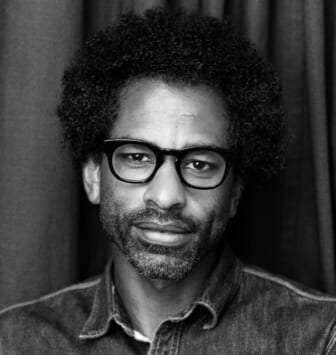How Trump turned the Supreme Court into the court of white backlash
OPINION: The current court is the product of former President Donald Trump, and he's the product of white backlash. The court will push Trump's ideals on us for decades.

Editor’s note: The following article is an op-ed, and the views expressed are the author’s own. Read more opinions on theGrio.
One day, historians will look back at this era of the Supreme Court and call this some version of “the crazy era.” This is the era when several longstanding precedents were overturned and several big ideas that had long shaped American life were scrapped like the right to an abortion or the expectation of affirmative action. Also, the court said, it’s now OK to discriminate against gay people. With these decisions from this court, America has taken a big step back. But I think that was the whole point.
This current Supreme Court has three justices who were appointed by Donald Trump — Neil Gorsuch, Brett Kavanaugh and Amy Coney Barrett. Trump appointed more justices in his four years than Obama, Bush and Clinton did in eight-year terms. Gorsuch, Kavanaugh and Barrett have been just as conservative as expected because Trump chose justices he knew would agree with his politics. He knew they would make the decisions he would want. So now, tragically, we have Trump’s court. And that will give him a chance to continue to have an impact on American life for decades to come even if he were to stop breathing today.
The Trump justices are making decisions that speak to white backlash — they’re restricting the rights of Blacks, women and gay people. That makes sense because white backlash is critical to Trump’s appeal. Trump spoke to white fear about the advancement of Black people, LGBTQ people and women. He spoke to a future where white people will be a minority compared with people of color. Trump is the personification of white backlash, and his success is tied to it.
When he rose in 2016, after a Black president and while competing against a woman who seemed as certain of winning as an incumbent, Trump was like a crusader for white men, reminding them that they were still powerful. He was their champion in a world where LGBTQ people and immigrants seemed to be changing the fabric of American life. “Make America Great Again” was about turning the clock back to the 1950s when everything was centered around the straight, white male. They felt like they were losing their sense of superiority, and they voted for Trump.
Now, Trump, while in office, was not a skilled legislator. He was not a policy guy, but he did understand the big principles of conservatism. By that I mean, he’s good at putting straight white people first. He’s good at making them feel like victims. Trump wasn’t good at creating lasting legislation that would actually help them — there isn’t any piece of major legislation through which we can say Trump truly changed America like Obama did with health care or Bush did with the Patriot Act. But thanks to the Supreme Court, Trump will have a massive impact on America for decades to come.
American history is filled with periods and incidents of white backlash. Tulsa and Rosewood are two examples of violent white reprisals against Black progress. White people always feel like they’ve given us too many rights, and it’s time to take some back. We’re in the midst of another backlash period where there are lots of angry whites who are fearful of losing their place, and they’re being represented by this crazy Supreme Court. No matter who wins the next election, they will continue to have the Supreme Court as a place where they can get white justice. I fear for the future of this country.

Touré is a host and Creative Director at theGrio. He is the host of the docuseries podcast “Being Black: The ’80s.” He is also the host of the podcast “Toure Show” and the podcast docuseries “Who Was Prince?” He is the author of eight books including the Prince biography Nothing Compares 2 U and the ebook The Ivy League Counterfeiter.
TheGrio is FREE on your TV via Apple TV, Amazon Fire, Roku, and Android TV. Please download theGrio mobile apps today!



